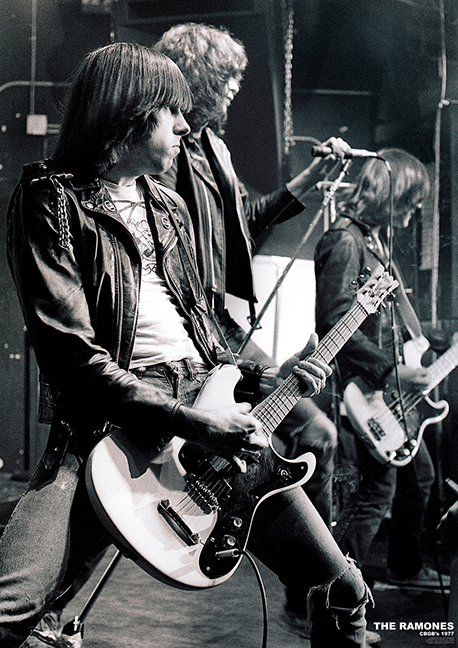

We also shared this dark, black sense of humor that only a few people understood.” Lead singer Joey Ramone encapsulated the band’s roots and appeal in a couple of succinct sentences: “We were all kind of loners and outcasts – and that’s our audience. Prophets without honor, and without record sales, for most of their career, and a divisive and controversial presence in the late ‘70s, the four “brothers” would influence countless others in their artistic wake. at 315 Bowery, told the group, “Nobody is going to like you guys, but I’ll have you back.” The music of the Ramones and their contemporaries – Patti Smith, Television, Blondie – kick-started the punk revolt. The most rigorously stylized original band of their day, the Ramones were fortunate enough to begin their career during an era when a neophyte club owner in New York’s Bowery was willing to take some chances on unproven local groups who were playing their own material. Pretty soon there was a name for this stuff: punk rock. On its cover, the four band members stared impassively into the camera lens, clad in uniform jeans, t-shirts, and leather jackets, as if they were inviting the listener to a block party, or a brawl. The lyrics – about glue-sniffing, Nazism, violence, and bad, stupid girlfriends - were so dumb they were smart. The songs on the 29-minute, 14-track collection were loud, short, fast, funny, and almost invariably announced with a chanted “one-two-three-four!”. Issued during an era of wretched excess, amid the virtuosic indulgences of progressive rock and the party-hearty exhortations of disco, it was something new under the sun.

It caught the rock ‘n’ roll world by surprise. More than 30 years after the fact, it is hard to recapture the impact of the Ramones debut LP, released on April 23, 1976.


 0 kommentar(er)
0 kommentar(er)
